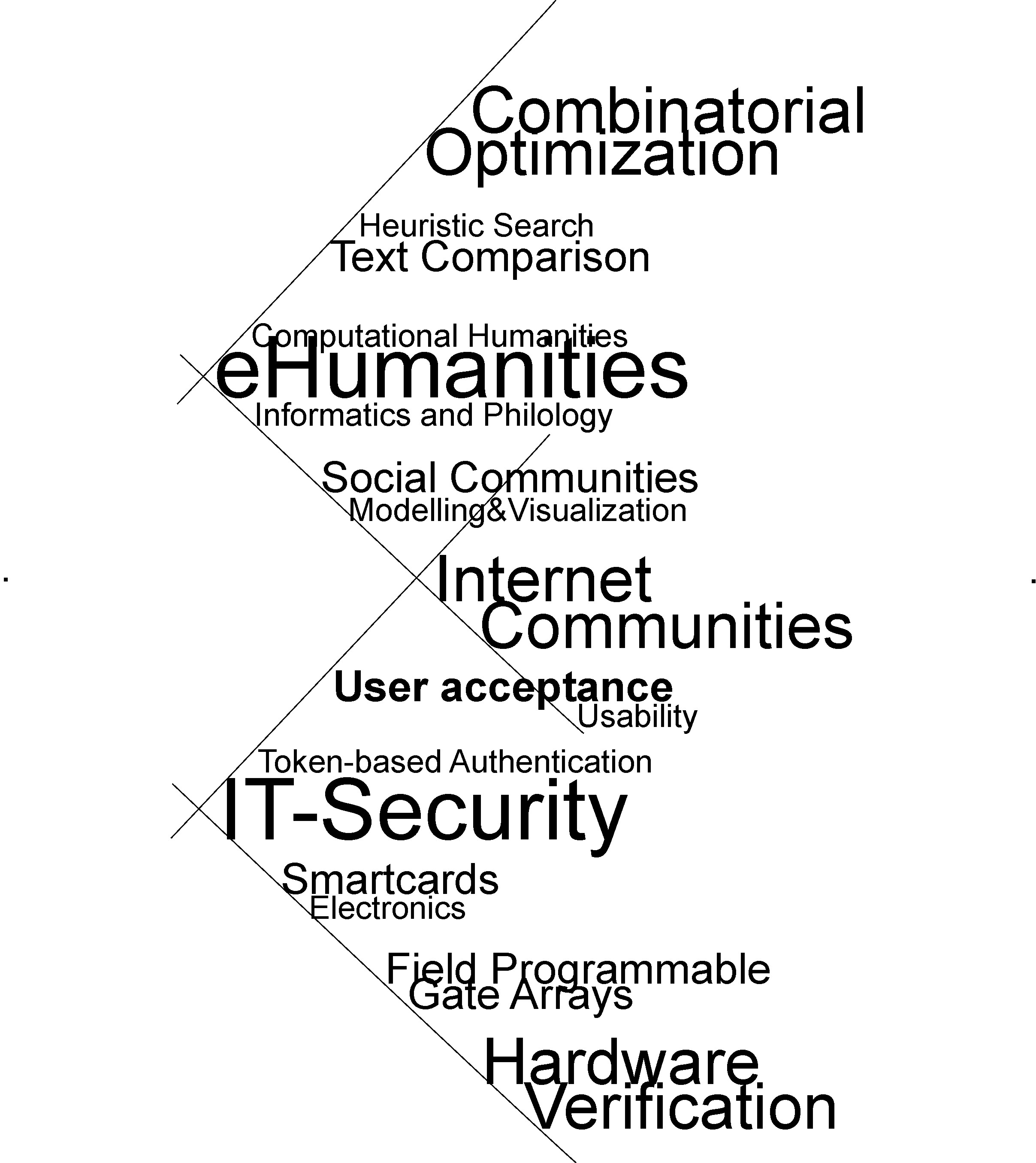A New Supplement Dictionary of Sanskrit
Project managers

Prof. Dr. Slaje, Institute for Indian Studies at University of Halle-Wittenberg, Prof. Hanneder, Institute for Indian and Tibetan Studies at University of Marburg, Prof. Dr. Paul Molitor und Dr. Jörg Ritter, both with the Computer Science Institute at University of Halle-WittenbergSpreche.
Project Manager: Prof. Dr. Slaje
Summary
[From the formal application] The Sanskrit language has its roots in the 2nd millenium B.C. and is indispensable for queries concerning Indo-European linguistics as well as comparative cultural studies. For the greater part of Indian history Sanskrit was the dominating pan-Indian cultured language and the richness of its pre-modern corpus of sciences and literatures has no counter-part in other pre-modern civilizations. It has retained its normative and identity forming power even into modern and contemporary India. The vocabulary of Sanskrit, which transports worlds of meaning that reach back up to four thousand years, was made accessible in two epochmaking reference works, the so-called Petrograde dictionaries (PW 1875, pw 1889), which have never been superseded. In his supplement volume R. Schmidt attempted in 1928 to capture the rapid development of new findings or first editions of Sanskrit texts as well as researches in historical linguistics and studies of single words. Since, the gap between the actual state of research and its representation in lexicography widens continuously. Addenda to the Petrograde dictionary as well as an inordinate number of word studies and glossaries were published in various places, even new large-scale dictionary projects were initiated , as for instance the Poona dictionary that, however, could not finish the first letter of the alphabet, but the actual state of research on a specific word can still be ascertained only incompletely and by accident. For most of the practical work with Sanskrit texts in the 21st century the large dictionaries of the 19th century are still the main source. In order to remedy this situation, surely intolerable from an academic perspective, a cumulative supplementary dictionary would have to critically review the advancement of lexicographical studies and list all additions referring to the well-established Petrograde dictionary. Thus, unlike other dictionary projects which can only be fully used after their completion, all addenda and supplements will be made available on an internet portal with adequate search functions and investigation facilities. Perspectively, we aim at an online portal in which the Cologne Digital Sanskrit Dictionaries and all addenda and supplements are homogeneously integrated. In the course of three years (2009-2012) the University of Halle funded the preliminary work (search for sources to be evaluated, compilation of sigla, development of input schemes etc.) for this project and the system could be fine-tuned in a test-run. As a result the first entries to a Cumulative Supplement Dictionary would be available soon after the commencement of work on the project.
Publications and talks
[4] K. Einicke und S. Heße. Ein Wörterbuchportal für das Sanskrit? – Arbeitsinstrument für künftige Untersuchungen zur Historischen Semantik. Workshop "Historische Semantik und Semantic Web" der Heidelberger Akademie der Wissenschaften und der Union der deutschen Akademien der Wissenschaften, AG "Elektronisches Publizieren", 14.-16.09.2015, Heidelberg.
[3] S. Heße, K. Einicke, and J. Ritter. An Efficient Collaborative Web-based Working Environment For The Creation Of A Digital Sanskrit Dictionary. Digital Humanities, DH2015, Sydney, Australia, 29.6.-3.7.2015.
[2] K. Einicke. Das kumulative Nachtragswörterbuch des Sanskrit - Zum aktuellen Stand der lexikographischen Arbeit. Wörterbuchkolloquium der Akademie der Wissenschaften und der Literatur Mainz, 25.06.2015.
[1] S. Heße. Das kumulative Nachtragswörterbuch des Sanskrit - Vorstellung einer web-basierten Arbeitsumgebung. Wörterbuchkolloquium der Akademie der Wissenschaften und der Literatur Mainz, 25.06.2015.
Funding period
12/2013 - 11/2016





